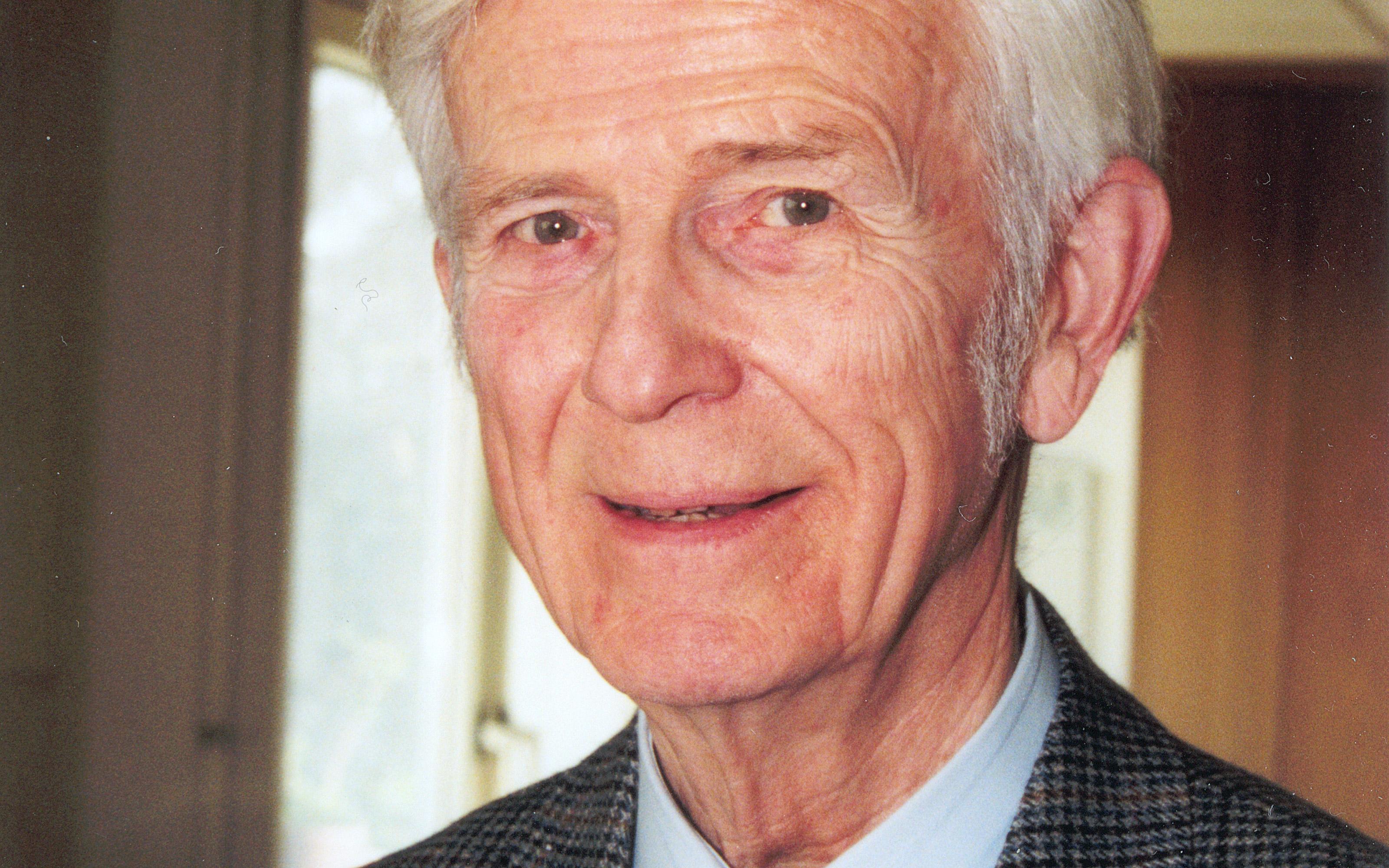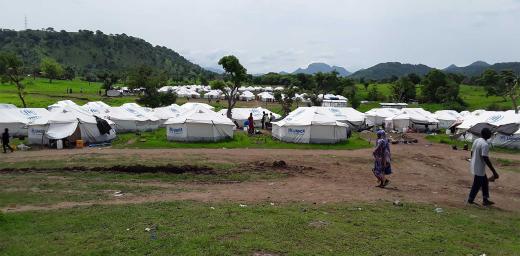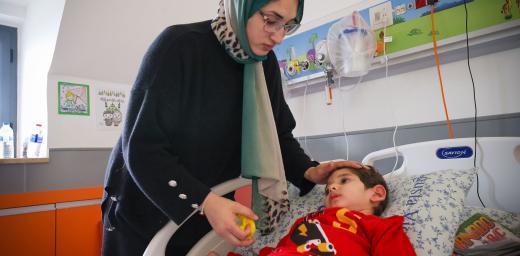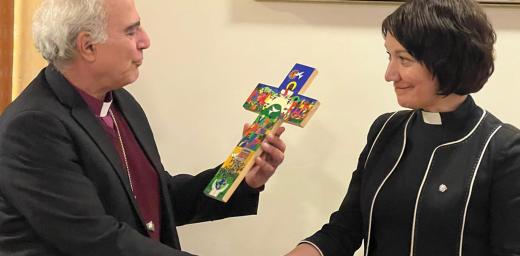Tribute to Eugene Ries: A Life for LWF World Service

Dr Eugene Ries (1926-2013). Photo: LWF/C. Rothenbühler
Remembering a Leader Who Helped Bring “New Hope and New Life”
(LWI) The Lutheran World Federation (LWF) has paid tribute to the life and service of Rev. Dr Eugene Ries, former director of the LWF Department for World Service, who died on 19 July, aged 86.
“It is not an exaggeration to say that he helped bring new hope and new life to hundreds of thousands of people,” LWF General Secretary Rev. Martin Junge said in his tribute to Ries, who devoted his entire ministry and professional life in LWF’s service.
Junge recalled the manifold service Ries provided to the LWF including his work with displaced persons in Austria and Germany following World War II, support to the Southeast Asian boat people, those fleeing colonialism and apartheid in Southern Africa, victims of drought and oppression in Ethiopia, and people caught in violence in Central America.
“He never lost sight of the mission. His life and work personified diakonia,” Junge added.
An American Lutheran pastor, Ries joined the LWF in 1949 as director for resettlement in Austria. He moved to Geneva in 1961, where he served in various LWF World Service positions until his retirement at the end of 1990.
Ries lived in retirement in Switzerland, and is survived by his wife Barbro and their son Thomas.
- Obituary for Rev. Dr Eugene Ries (1926-2013)
Rev. Dr Eugene Ries, former director of The Lutheran World Federation (LWF) Department for World Service, died on 19 July at the age of 86. He lived in retirement in Switzerland. During his last years his health gradually declined.
“Dr Ries was a giant in the history of The Lutheran World Federation,” said LWF General Secretary Rev. Martin Junge. An American Lutheran pastor from Baltimore born in 1926, Ries devoted his entire ministry and professional life to service with the LWF. Fresh out of seminary, he joined the LWF in 1949 as director of resettlement in Austria. For the next 12 years he helped lead the Lutheran resettlement efforts for displaced persons and refugees in Austria and Germany. In 1963, the President of Austria awarded Ries the country’s Grand Medal of Honor, in recognition of the large-scale refugee assistance operation carried out by the LWF.
In 1961, Ries moved to Geneva, where he served in various LWF World Service positions until his retirement at the end of 1990. He headed the LWF’s former Community Development Service (now part of the Department for Mission and Development), 1970-1980. For ten years, from 1980 to 1990, he directed the LWF Department for World Service.
“Dr Ries’ service was manifold,” Junge observed, “with displaced persons in Austria in the wake of World War II, with Hungarian refugees after 1956, with the Southeast Asian boat people, with those fleeing colonialism and apartheid in Southern Africa, with the victims of drought and oppression in Ethiopia, with those fleeing violence in Central America, and with so many more. It is not an exaggeration to say that he helped bring new hope and new life to hundreds of thousands of people.”
Dr Brian Neldner, who was Ries’ deputy and then succeeded him as director for World Service, reflected, “Gene Ries was the last of those actually involved and knowledgeable of the early work of LWS post-World War II in Europe.” But his work did not stop there, Neldner continued: “Many of the new country programs started during the eighties are still core programs (or associated programs) of Lutheran World Service.”
Dennis Frado, director of the Lutheran Office for World Community in New York and a staffer for Ries during the 1980s, also highlighted Ries’ legacy: “From his earliest work in post-World War II Central Europe assisting refugees to his leadership of the LWF’s refugee, relief and development work for nearly three decades, Gene’s dedication to those in need was one of both compassion and a life-long commitment to international humanitarian action based on Christian values. Gene’s professional manner in which he led LWF’s work influenced the development of international standards more widely, with the result that they still are reflected in humanitarian activities today.”
Giving thanks for Ries’ life and witness, General Secretary Junge concluded with these thoughts: “St. Paul writes that one of the gifts of the Spirit is administration. This was certainly true of Dr Ries. He was an orderly and careful leader who chose good people, clearly described and delegated their tasks, and then helped provide the funding and organization to make it possible for them to do their work. Colleagues have described him as one whose command of facts and figures was encyclopedic. He would often say that we have no problems, only challenges. He never lost sight of the mission. His life and work personified diakonia.”
Surviving are Ries’ widow Barbro and their son Thomas.





